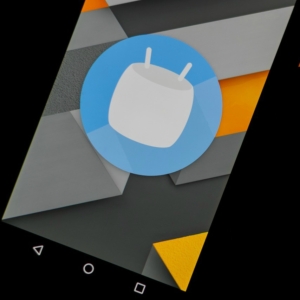 A new research report from digital app developer WillowTree offers valuable insight into consumers’ use of brand apps, their expectations for value, and the impact their experiences have on brand loyalty.
A new research report from digital app developer WillowTree offers valuable insight into consumers’ use of brand apps, their expectations for value, and the impact their experiences have on brand loyalty.
The good news is 85% of customers have had mostly positive experience with brand apps but the bad news is many brands are falling short in several key areas of customer expectations.
“The ability to foster a positive experience has enormous potential for brands looking to drive engagement and loyalty,” said WillowTree CEO Tobias Dengel. “It puts brands in a critical position to understand the role that the brand app plays in the customer journey and in the customer relationship and the value they can build into these products to avoid joining the vast ranks of deleted apps.”
Key findings on brand apps
 The most popular categories of brand apps are banks, restaurants, and retailers, which rely heavily on the ability to drive frequency and loyalty. 67% of consumers surveyed said they have one or more brand app. Two-thirds of consumers use a bank app at least once a week.
The most popular categories of brand apps are banks, restaurants, and retailers, which rely heavily on the ability to drive frequency and loyalty. 67% of consumers surveyed said they have one or more brand app. Two-thirds of consumers use a bank app at least once a week.
Brand apps can be an invaluable extension of the brand to consumers, but with more than 5 million apps now available, brands must meet consumer expectations.
WillowTree identified the key features consumers want:
- 65% of consumers expect promotions and exclusive deals
- 59% expect loyalty programs
- 50% expect the ability to make purchases within the app.
“This research definitively shows consumers expect brand apps to drive their loyalty, and that poor apps have a direct negative impact on a brand’s perception as a whole,” Dengel added.
What else do they want from their apps?
![]() Consumers also identified some of the other features they said would make their apps more valuable including:
Consumers also identified some of the other features they said would make their apps more valuable including:
- 50% to get additional products or services such as finding a location or ordering ahead
- 35% would like apps to improve or customize their brand experience such as in-store, on e-commerce sites and brand events
- 30% said more personalization of their app would be valuable.
What’s the payback from a good brand app?
One of the key findings from WillowTree’s research is the positive impact a good brand app experience can have on business results.
Here are four positive outcomes:
- 67% of consumers would sign up for a loyalty program
- 64% would make purchases through the app
- 50% would use regularly
- 47% said a positive experience would increase their brand loyalty.
Apps matter to millennials
 The payback is even more pronounced with millennials. While 34% of consumers would be more favorable towards a brand with a positive app experience, 41% of millennials would react positively, compared with only 28% of those over 60 years of age.
The payback is even more pronounced with millennials. While 34% of consumers would be more favorable towards a brand with a positive app experience, 41% of millennials would react positively, compared with only 28% of those over 60 years of age.
51% of millennials also said that a positive brand app experience would make them more likely to purchase from that brand consistently, compared to 47% overall and 35% of Boomers.
Negative brand app experience kills loyalty
the three primary reasons for negative experience with brand apps were: poor user experience (50%); technical issues (46%); app not helpful or useful in any way (38%).
43% have deleted as many as 25% of their apps and 22% have deleted more than a half of their apps.
 The negative impact of a poor brand app experience is pronounced. If customers have a negative experience:
The negative impact of a poor brand app experience is pronounced. If customers have a negative experience:
- 68% will delete the app
- 30% would be less likely to recommend the brand
- 30% would purchase less
- 24% would be less loyal to the brand.
“Our relationships to apps are deeply personal in nature, and an app’s quality and usefulness act as an indicator of how much a brand cares about us. The brand app can no longer be a check-box item, especially in an extremely saturated market,” Dengel added.
When well executed, a brand app has the potential to be a valuable marketing channel, a positive engagement with consumers and a positive impact on the bottom line.
More than 1,000 US consumers were surveyed in March 2018 for this report. You can read the full WillowTree research study here.

